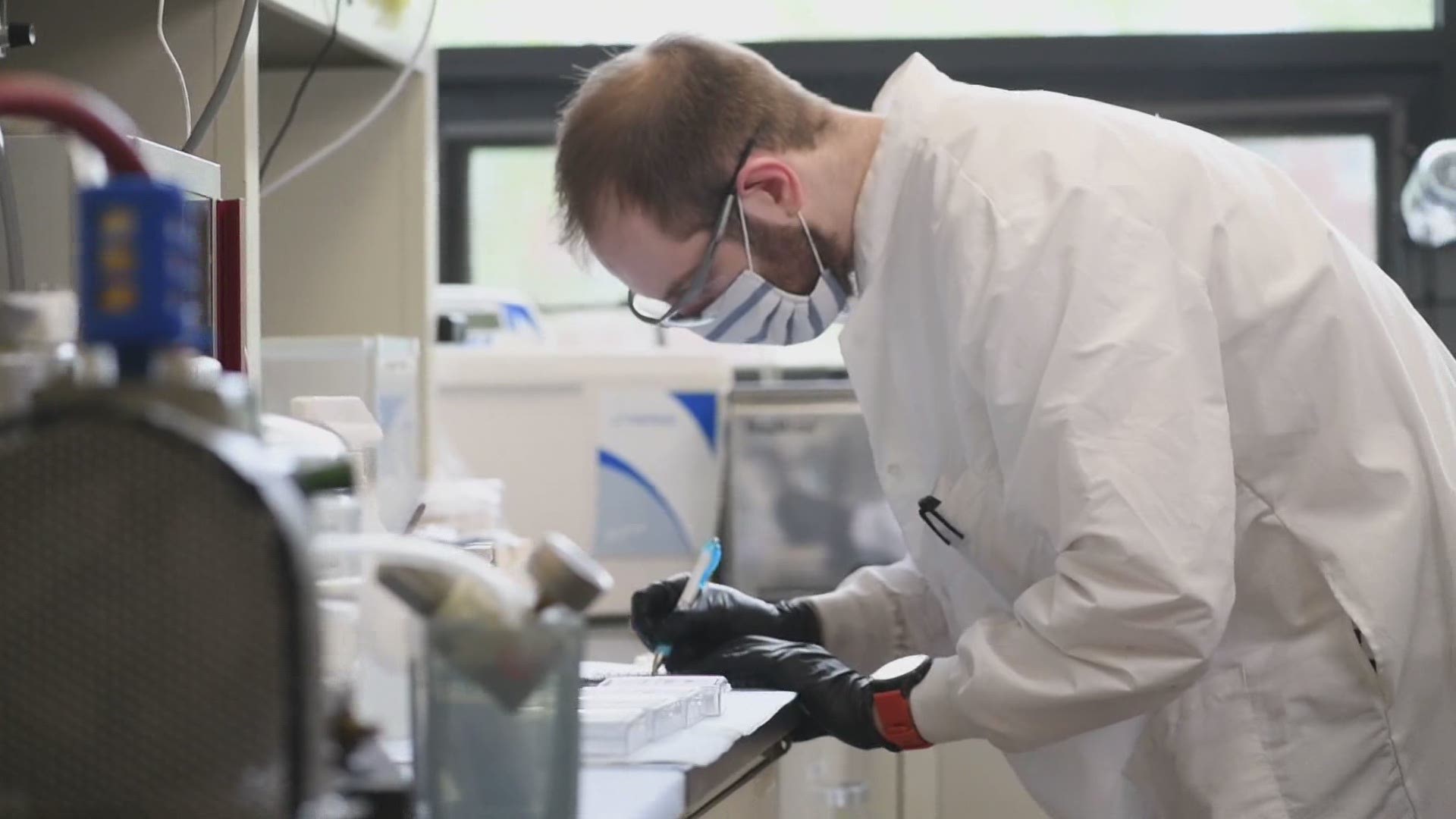ORONO, Maine — Researchers at the University of Maine Orono are on the brink of developing new filtration technology to capture and analyze air droplets that contain Covid-19.
Before the pandemic, scientists had found a way to capture live bacteria particles out of the air, borrowing an idea from a plant that uses a thin layer of liquid to trap insects.
Researchers created membrane inserts, that can be used in air filtration systems. The technology proven more than three times more effective than large filtration systems to collect pathogens. Testing will begin next week in special designed labs at the University of Maine Cooperative Extension. Researchers will use less-lethal a virus first.
"So if we can catch this virus and pull it off the membrane for testing, we are confident we can do the same thing with SARS-CoV-2,' Caitlin Howell, a biomedical engineer at UMaine and the project's lead researcher said.
Researchers plan to start trials using live strains from Covid-19 in March.
UMaine is working together on the project with the University of Massachusetts at Amherst thanks to a $225,000 grant from the National Science Foundation.

